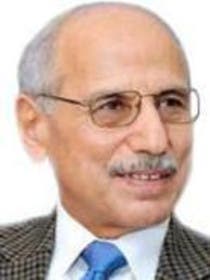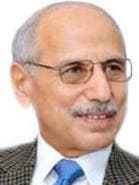The current Iraqi scene suggests that no one has done anything to change or improve the country's situation, which has been deteriorating since the Islamist parties managed to dominate the state and society, with the help of from outside actors such as Americans and Iranians, an electoral process that has never been fair, as some have recognized some parties.
The constitution for which the Iraqi people defied al-Qaida and other terrorist organizations and voted in favor of it in 2005 ended with an article obliging it to be amended in a period expiring in 2007. To date, not a single letter has been changed!
Two parliamentary terms have ended since the first (2006-2010) without returning to the original text, namely the constitution. In fact, some enthusiastically and boldly stated that "the quota system is here to stay" and that it "has become a reality"
Adnan Hussein
Quota system
It is as if the powerful forces, which put this constitution aside just after the holding of a referendum and replaced it with a sectarian and nationalist quota system, have not committed themselves to to do so in a single legislature until all the sectarian and national components are assured that each has its place and role in the new regime, as was claimed at the time. Two parliamentary terms have ended since the first (2006-2010) without returning to the original text, namely the constitution. In fact, some have enthusiastically and boldly stated that "the quota system is here to stay" and that it "has become a reality".
It's as if the forces that won the May general elections had not all announced their belief of the importance of abandoning the quota system and seeking to establish a civil status , as well as the order of citizenship after the boycott of the majority of Iraqis (60%) elections. They did so to protest against the management of the administration, which is based on a quota system that equates to a "Pandora's box" full of evils, including greed, vanity, slander, lying, envy, weakness, insolence, etc.
It is as if these same forces did not publicly commit after the elections not to intervene in the formation of the new government and to let the appointed prime minister, Adel Abdul Mahdi, manage the training and freely choose the ministers!
OPINION: What is the effectiveness of US sanctions against Iran?
In spite of all this, everything in Iraq has returned to square one. The quota system is still in place and it has again decided that the president of the House of Representatives should be Sunni, the President of the Republic is Kurdish and the Prime Minister is certainly a Shiite. The ministers are therefore appointed according to the same sectarian equation, without any consideration or attention to the eligibility for state functions: competence, experience, integrity and patriotism.
Abdul Mahdi has formed an incomplete government, trapped in the same vicious circle of the quota system. The selection of ministers for the remaining posts is hampered by the quota barrier that Abdul Mahdi has not dared to cross, although powerful forces have publicly declared that he could.
The quota system has therefore been reproduced with the new government. The deteriorating or rather exhausted political process recycles itself and its components lead to the same threats of worsening the political conflict, fragmentation of the social structure and recrudescence of financial and administrative corruption. This is in addition to corrupt political practices, such as the shameless buying and selling of ministerial posts and the insistence on appointing people without political training or popular support. Some of them are even involved in cases related to terrorism and corruption.
The results
What will all this lead to? This recycling process will drive Iraqis to express their anger against the powerful political class, an anger that has often been expressed in the form of continuous and increasing protest movements, as well as the boycott of the elections.
ALSO READ: Iran, sanctions and hindering the formation of governments
The public protest in Iraq has been steadily increasing since 2010, in parallel with the deterioration of the public service system, including electricity, water, transport, housing, health and safety. education. This is in addition to the growing crisis of unemployment and poverty and the disruption of development projects due to corruption and mismanagement resulting from the appointment of management positions to unworthy and incompetent personalities. Indeed, last summer was the scene of violent protest movements.
In the midst of an expired political process deemed illegitimate by many Iraqis, the current cabinet, formed by Mr Abdul Mahdi like the previous ones, can not take Iraq out of the long, dark tunnel in which it has been blocked. the last 15 years. It will only mean that Iraqi anger, which is struggling to make itself understood, can this time be devastating if it explodes again as it loses the hope of getting out of this tunnel.
This article is also available in Arabic.
_________
Adnan Hussein is the editor-in-chief of Al-Mada newspaper and the head of the National Union of Iraqi Journalists. Previously, he served as editor of the newspaper Asharq al-Awsat. He tweets under the handle @adnanhussein.
SHOW MORE
Last updated: Sunday 18 November 2018 KSA 08:19 – GMT 05:19
Warning: The opinions expressed by the authors of this section are theirs and do not reflect the point of view of Al Arabiya English.

